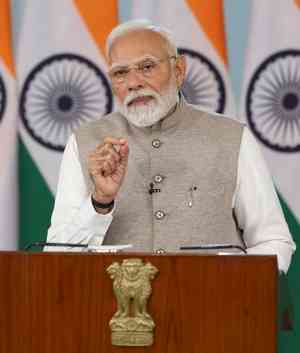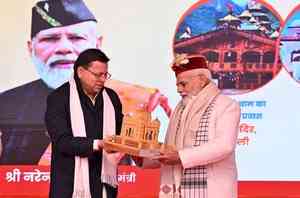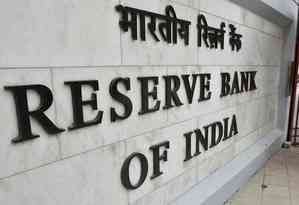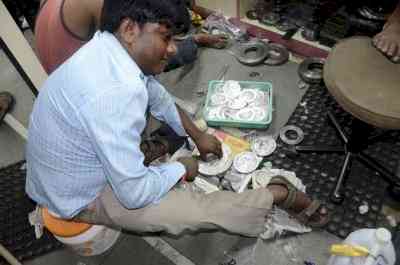India won't abandon Afghan people, but recognition of Taliban not on radar
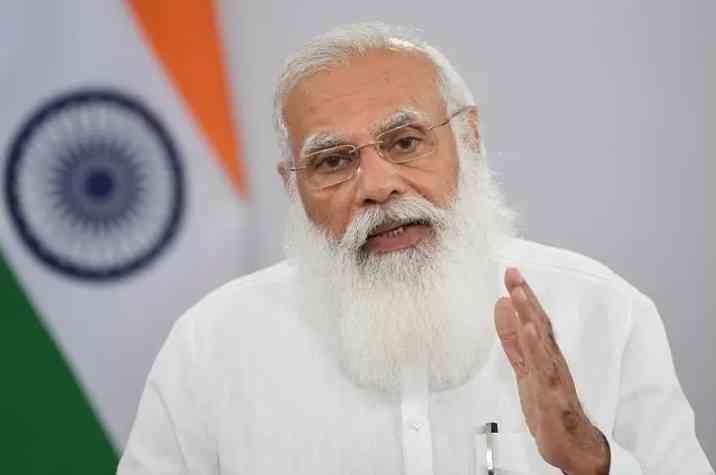
By Mahua Venkatesh
New Delhi, Aug 31: India is walking a thin line on Afghanistan, navigating a path which can allow continuation of projects and people-to-people contacts, without recognising a Taliban-led government, at least for now.
Authoritative sources told India Narrative that India is in no mood to recognise the Taliban rule in Afghanistan in a hurry, even as the top leadership of the outfit reached out to New Delhi, describing it as an important country in the region.
For now, as the Taliban are set to assume formal control of the country, following withdrawal of the US troops, India has adopted a wait and watch policy before taking any decision.
"There are too many balls in the air right now. A rebellion against Taliban, led by the Tajik community is raging in the Panjshir valley. Without accommodating the minorities, the Pashtun dominated Taliban cannot hope to rule the entire country. The Taliban-run economy will be tested, and the group has a terrible image of medieval theocracy," an analysts said.
Sources, however, said that New Delhi could look at ways to continue its association with the common people of Afghanistan, who have been the worst sufferers.
India has invested over $3 billion in the country in building dams, roads, electricity transmission lines besides schools and hospitals in the war-torn country. Even the country's Parliament building has been built by India. It was inaugurated by Prime Minister Narendra Modi in 2015.
Leading energy and geopolitical expert Narendra Taneja said that India's connect with the people of Afghanistan dates back to thousands of years ago. "We need to distinguish between the people and the group in power there. We shouldn't look at the developments in Afghanistan in an emotional manner, we will need to be pragmatic. We should strive to restart our stalled developmental projects provided Kabul is willing to extend the guarantee in terms of safety of our workers and technicians," Taneja told India Narrative.
"Our strategy should be to stay connected with the people of Afghanistan first and foremost," he added.
Last year External Affairs Minister S Jaishankar speaking at the Afghanistan Conference in Geneva said "no part of Afghanistan today is untouched by the 400-plus projects that India has undertaken in all 34 of Afghanistan's provinces".
Earlier this month, chairing a meeting of the Cabinet Committee on Security (CCS), Prime Minister Narendra Modi said that New Delhi will provide all possible assistance to "Afghan brothers and sisters who are looking towards India for assistance".
Separately, External Affairs Minister S. Jaishankar said that India's approach to Afghanistan will be guided by the will of the Afghan people. "For us, it (Indian investment in Afghanistan) reflected our historical relationship with Afghan people. That relation with Afghan people obviously continues. That will guide our approach to Afghanistan in the coming days," Jaishankar said in New York after attending the UN Security Council meeting.
Indian people-oriented investments in Afghanistan include the construction of the Parliament building, the Salama dam, the development of the Chabahar route that links landlocked Afghanistan to the Indian Ocean and hundreds of other humanitarian projects across the country, which now need to be protected.
With the inflow of foreign aid coming to a halt and the Taliban being barred from accessing the $9.5 billion international reserves, the real battle for Afghanistan will begin only now.
Thousands of Afghan people feel betrayed at the rapid withdrawal of foreign forces from their land.
The International Rescue Committee said that if the crisis in Afghanistan is left unaddressed, 2021 is on track to be the deadliest year for Afghan civilians in over a decade. Civilian deaths and injuries reached record levels in the first half of the year.
(The content is being carried under an arrangement with indianarrative.com)


 IANS
IANS 
